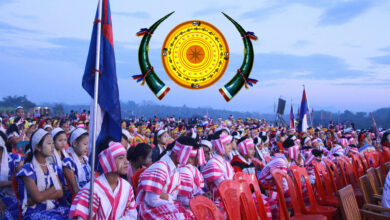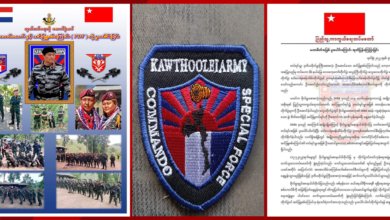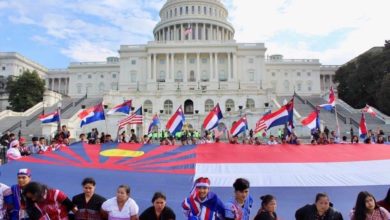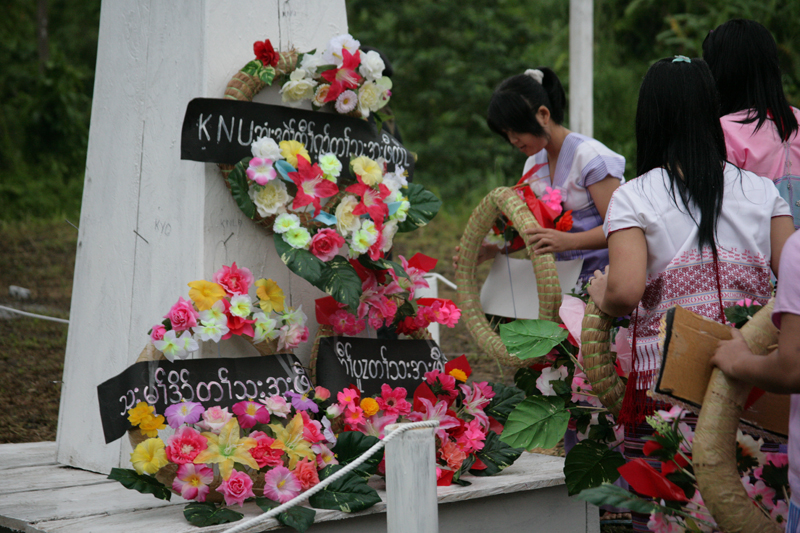Time For A United, Modern KNU
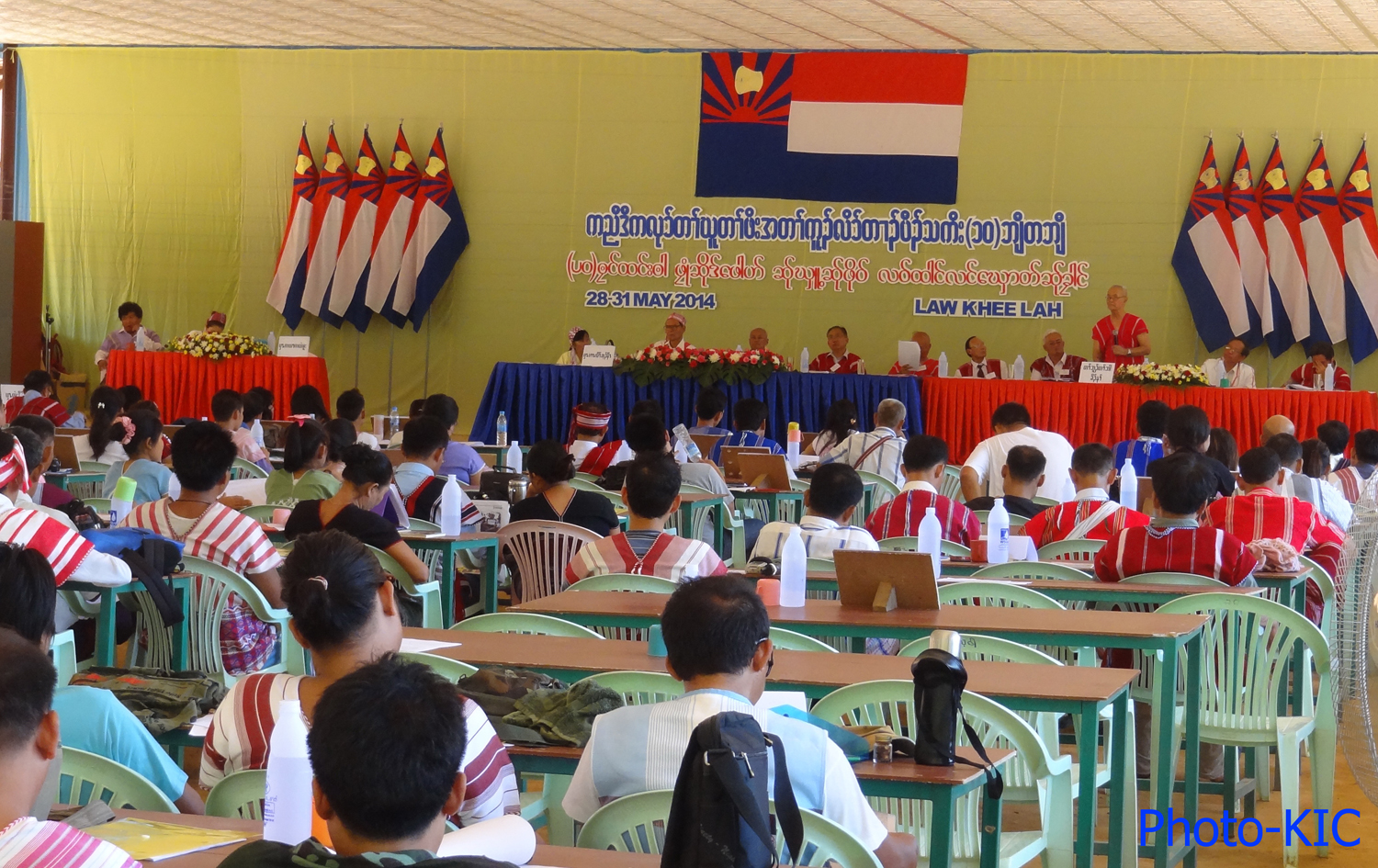
It is no secret that there is division within the Karen nation about how we should respond to the political changes that have incurred in our country since 2011. Some see the ceasefire process as a genuine opportunity to start negotiations that could give the Karen people guaranteed rights. Others see it as a trap, designed to neutralise Karen resistance and try to defeat us with tactics like so-called development projects, which actually increase central government influence.
Sadly some Karen seem to be opportunist, seemingly not to care if either of these opinions are correct, but just seeing personal opportunity for themselves.
It is also no secret that many Karen people are unhappy with the current leadership of the Karen National Union (KNU). It is understandable that passions and feeling are strong about this – it is right that they should be. We Karen have struggled so long, and suffered so much, and our survival as a race is at stake. Of course we must be passionate.
But we must also think about a long-term strategy, because the Burmese government are smart, and they think long term, and they are very tricky.
Division within the Karen has been the curse of our struggle for decades. It has weakened us, and it has strengthened our oppressors. Divided we are weaker. If there are more splits from the KNU, it will be Aung Min and President Thein Sein who will be celebrating.
The KNU was formed in 1947, and its predecessor organisations date back to 1881. For more than 130 years the KNU and its predecessors have been the main representatives of the Karen people. They have led us, they have represented us, and they have protected us.
When looking at how we deal with the political challenges we face now, and the internal problems we face within the KNU, we need to learn from what our history has taught us. In the KNU we have a proud history. At different times we have adopted different tactics to deal with different political situations.
Our struggle for freedom has taken many forms, ranging from political engagement with the British colonial government and then the first independent government, to peaceful protest, and then armed resistance when our demands for rights were met with violence and repression.
We have struggled while under colonial rule as part of India, under colonial rule as part of Burma, under the Japanese occupation, under the democratically elected governments after independence, under the dictatorship of Ne Win, under the dictatorship of the State Law and Order Restoration Council, under the dictatorship of the State Peace and Development Council, and now under the military-backed government of the Union Solidarity Development Party.
During all of these times we have faced different kinds of repression, and faced different tactics by different regimes to suppress us, to divide us, to attempt to co-opt us, and to crush us.
During all of these times we have used different methods of struggle, to suit the different challenges we face – all attempts to destroy the KNU, and the Karen people, have failed.
Under the new military-backed government led by President Thein Sein, we face new challenges and must adopt new methods to adapt and respond to these challenges. The changes in the situation in Burma since 2011 are many, in some areas there are some improvements, in others the situation has got worse. The political landscape is changing, and the policies of the international community have changed as well.
Since 1881 the organisations representing the Karen people have always changed and adapted to deal with new situations. Now as we face new challenges and a new political situation in Burma, we must change and adapt again.
The KNU belongs to the Karen people. It does not belong to any one person. As with any organisation, there may be times when leaders make decisions that are not popular. The solution to this problem is not to leave the KNU and set up another organisation. The solution is to be able to choose another leader if we do not like the decisions they are making. KNU leaders are elected to represent us. If we don’t agree with decisions they make, we should be able to democratically choose a new leader. If there is a genuine democratic vote, we should accept the result.
Problems within the KNU are partly the result that we have not been fast enough to adapt to the changing political situation in Burma, and partly because we have not been fast enough to change and modernise our own internal systems of managing the KNU.
We need a modern KNU to deal with modern challenges.
If the KNU is to adapt and to continue to lead the Karen people in our struggle, we must take action in the following areas:
Modern KNU
The KNU must be for all the Karen: The majority of Karen people do not live in Karen State. The KNU must expand to build membership and support among all the Karen people, wherever they live in Burma, on the border, or abroad.
The KNU must represent the concerns of the Karen: The KNU should hold a nationwide consultation with Karen people to consult on and develop policies in all areas that affect the lives of Karen people. At the end of this process the KNU should have clear agreed up-to-date policy on issues on the economy, health, education, human rights, agriculture and other issues. We should also have a statement of our basic principles and goals, such as the right to free universal healthcare, free education, freedom of religion, gender equality, and other fundamental rights.
The KNU must be the voice of the Karen people: People will not join and support the KNU if they do not feel the KNU represents and speaks for their concerns. Based on the nationwide consultation, the KNU must have ministers who are actively working on their areas of responsibility to represent the Karen people, and develop policies and programmes to assist them, be they farmers in the Delta, business people in Rangoon, IDPs in Karen State, or refugees abroad.
The KNU must be fully democratic: The KNU is struggling for a democratic peaceful Burma. We must put our principles into practice in the organisation of the KNU. In a modern society people expect their voice to be heard and their leaders to be accountable. People will not join and support the KNU if they do not feel they have a say in how it is run. Bearing in mind the challenges and costs, we must explore new ways to increase democracy within the KNU, with a goal of one member one vote as soon as possible.
The KNU must be clean and transparent: The KNU must have zero tolerance for corruption, and must set an example for open accountable political leadership. The KNU should have an anti-corruption department and take appropriate actions against any members involved in corruption. KNU leaders, any KNU members nominated or putting themselves forward for election to KNU leadership positions or in any legislature, and KNLA commanders, should publicly declare the business interests of themselves and their immediate family, and publicly declare any support, salary, gifts or benefits they receive from any source.
The KNU must stand firm for human rights: The KNU should incorporate into its constitution to abide by international law and international human rights standards, and always be at the forefront of challenging prejudice and defending human rights, for the Karen, for all the people of Burma, and for all humankind.
The KNU must promote genuine equality for women: Women make up half the Karen nation and have and continue to play a critical role in our struggle for freedom, but women are not treated equally in Karen society and in Burma generally. This must change. The KNU should develop programmes to eradicate prejudice and inequality, implementing a women’s empowerment and development programme, to be implemented across Burma.
The KNU must remember our heroes: Over many decades millions of Karen people have suffered and made great sacrifices in our struggle for freedom. We must never forget them. We must also recognise the special role played by members of the KNLA and KNDO, and in the long-term seek to ensure they or their dependents receive a pension in recognition of their bravery and sacrifice.
The KNU must protect and promote Karen culture: The Karen people have been struggling to protect and promote Karen culture and identity, and our very survival as a race. The KNU must increase programmes to document, preserve and promote Karen culture and history, and promote Karen languages.
Our father, Padoh Mahn Sha Lah Phan, dedicated his life to the Karen people and the Karen National Union. Division within the Karen people broke his heart. He risked his life trying to meet with Democratic Karen Buddhist Army (now Democratic Karen Benevolent Army) leaders to prevent a split. There were times during his decades within the KNU when he disagreed with decisions the leaders made. But he stayed in the KNU, and argued for a change of policy within the KNU. Eventually he himself became a leader.
Both our parents dedicated their lives to the KNU. We have been members of the KNU for half of our lives. We might not agree with everything some KNU leaders are doing at the moment, but we are not going to leave our own organisation because we disagree with some decisions by the current leadership. We are going to fight for the Karen, for the KNU, for the four principles of Saw Ba U Gyi, and for a modern KNU that genuinely represents the Karen people.
We want to promote a positive agenda for dealing with these problems and disagreements. The discussion should be based on positive proposals for achieving the change we want, not based on any one person, or personal attacks. In this way the debate about the future of the KNU can make us stronger, not divide us. This is how democracy works.
We know these nine suggestions for modernising the KNU will not solve all the problems, but we hope they contribute to a discussion on how we can make our KNU better and stronger. Let us as a Karen nation have a positive discussion on the future of our organisation. Let those who are angry, feel betrayed or disillusioned instead use their passion and energy to develop a positive plan for change. Let’s not keep arguing over how we respond to the agenda of the Burmese government. Let us rebuild and modernise the KNU so that once again we set the agenda. We must organise around what we support and what we stand for, not what we are against.
Our struggle for freedom has entered a new and dangerous phase. We must modernise and reorganise to respond to this, and we must stay united.
*Nant Bwa Bwa Phan, Nant Zoya Phan, Slone Phan, the writers of this commentary are the children of the former KNU leader, Padoh Mahn Sha Lah Phan. Padoh Mahn Sha considered by the international community as the opposition leader capable of uniting not only the Karen, but all the ethnic political groups in Burma. Gunmen, alleged to be acting on orders of the former Burma military dictatorship, assassinated Padoh Mahn Sha at his home in Thailand in 2008 – his killers have yet to be brought to justice.

